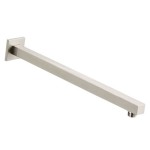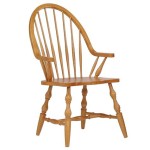What Is A Swing Arm
A swing arm is a structural component commonly used in various engineering applications, particularly in the automotive and motorcycle industries. Understanding the essential aspects of a swing arm is crucial for engineers, mechanics, and anyone interested in the design and functionality of mechanical systems.
The following article will delve into the key aspects of a swing arm, exploring its purpose, construction, types, and the factors influencing its design. We will also discuss the advantages and limitations of swing arms and their applications in different industries.
Purpose of a Swing Arm
A swing arm primarily serves as a suspension component in vehicles, connecting the wheels to the chassis or frame. It allows the wheels to move up and down, absorbing shocks and vibrations caused by uneven road surfaces or obstacles. This helps to improve ride comfort, handling, and overall vehicle stability.
Construction of a Swing Arm
Swing arms are typically made from durable materials such as steel, aluminum, or carbon fiber. They have a U-shaped or A-shaped design with two arms extending from a central pivot point. The pivot point is attached to the vehicle's chassis, while the ends of the arms support the wheels.
Types of Swing Arms
There are several types of swing arms, classified based on their design, material, and application. Some common types include:
- Trailing swing arms: Attached to the rear of the vehicle's chassis, these swing arms trail behind the wheels.
- Leading swing arms: Attached to the front of the vehicle's chassis, these swing arms lead the wheels.
- Double wishbone swing arms: Consists of two A-shaped arms that support a single wheel and allow for independent wheel movement.
Factors Influencing Swing Arm Design
The design of a swing arm is influenced by various factors, including:
- Vehicle type: Cars, motorcycles, and other vehicles have different suspension requirements, which impact swing arm design.
- Load capacity: The swing arm must be able to withstand the weight of the vehicle and any additional loads.
- Suspension geometry: The position and angle of the swing arm affect the suspension's kinematics and overall vehicle handling.
Advantages of Swing Arms
Swing arms offer several advantages, including:
- Improved ride comfort: By absorbing shocks and vibrations, swing arms contribute to a smoother and more comfortable ride.
- Enhanced handling: Swing arms allow for precise control of wheel movement, improving vehicle stability and handling.
- Durability: Made from strong materials, swing arms can withstand the rigors of road use and provide a long service life.
Limitations of Swing Arms
Despite their advantages, swing arms have some limitations:
- Weight: Swing arms can be heavy, especially if made from steel or other dense materials.
- Complexity: Designing and manufacturing swing arms requires specialized knowledge and precision engineering.
- Maintenance: Swing arms may require regular maintenance, such as lubrication and alignment checks, to ensure optimal performance.
Applications of Swing Arms
Swing arms are widely used in the automotive industry in various vehicles, including:
- Cars: Swing arms are commonly used in the suspension systems of cars, particularly for the rear wheels.
- Motorcycles: Swing arms are the primary suspension component in motorcycles, connecting the rear wheel to the frame.
- Off-road vehicles: Swing arms are used in ATVs, UTVs, and other off-road vehicles to provide suspension and handling capabilities.
Sa20 Swing Arm Military Systems Group
Swingarm Wikipedia
Why Are Modern Swingarms Curved Motorcycle Com
Single Sided Vs Double Swingarm What S The Difference Motodeal
Swingarm Length Reference Motospec Chassis Program

Swingarm Length Reference Motospec Chassis Program
What Are The Benefits Of A Single Sided Swingarm Quora

G3s Swingarm Geometry

Suzi Hayabusa Gen1 240 Dual Side Swingarm Garwood Custom Cycles

Suzi Lt500 Mtc Rear Swingarm Round Bearing Housing








